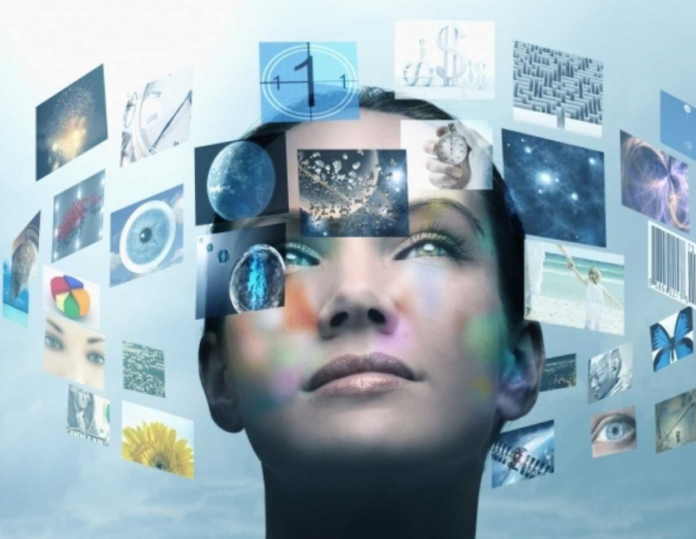The use of technology is ever-increasing. Look at this: In 2024, there are nearly 7.41 billion mobile users, 5.44 billion internet users and 5.07 billion social media users. All of these groups have almost increased by 1% since 2023 and are expected to keep on growing throughout 2025.
In today’s world, the digital age has a broad scope. Innovations like AI, Artificial intelligence, Big data, Automation, and Cloud computing are just some of the fields that fall under the digital age umbrella.
The digital age can be defined as a time when large amounts of information are widely available to many people, mainly through computer technology.
One definition that broadly defines the digital age is from TECHOPEDIA, which represents ‘The Digital Revolution’ as “the advancement of technology from analog electronic and mechanical devices to the digital technology available today. The era started during the 1980s and is ongoing. The Digital Revolution also marks the beginning of the Information Era.”
What is Digitization?
Digitization is the process of converting information from physical formats into digital formats. This involves transforming analog data such as documents, images, sounds, and videos into digital files that can be stored, processed, and transmitted by electronic devices.
Digitizing information makes it easier to access, share, and manipulate. For instance, turning an MP3 file from a vinyl record or scanning a paper document into a PDF.
Digitization benefits include increased efficiency, improved accessibility, better data preservation, and enhanced functionality. Digital information can be quickly retrieved, searched, and shared globally, supporting innovations in business, education, healthcare, and more.
However, challenges such as data security, costs, and ensuring data integrity need to be addressed. Overall, digitization is a crucial driver of the digital transformation reshaping modern society.
Also Read: Exploring Web 3.0: The Future of the Internet
Connectivity and Communication
One of the most significant impacts of the digital age is the transformation of communication. Social media platforms like Facebook, Twitter, and Instagram have revolutionized the way we interact with one another, breaking down geographical barriers and creating a global village. These platforms have not only changed personal interactions but also how businesses engage with their audiences. Digital marketing strategies have become important for companies aiming to reach a broader, more targeted audience.
Moreover, advancements in communication technologies, such as video conferencing tools like Zoom and Microsoft Teams, have redefined the workplace. Remote work has become a feasible and often preferred option, allowing for greater flexibility and work-life balance. The COVID-19 pandemic further accelerated this shift, demonstrating the resilience and adaptability of digital communication tools in maintaining productivity and collaboration.
The Rise of E-Commerce
The digital age has also revolutionized commerce, giving rise to e-commerce giants like Amazon and Alibaba. Online shopping has become a staple of modern consumer behavior, offering convenience, variety, and competitive pricing. The merger of artificial intelligence (AI) and machine learning has enhanced the e-commerce experience by providing customized recommendations and efficient customer service through chatbots.
Small businesses have also benefited from the e-commerce boom. Platforms like Shopify and Etsy enable entrepreneurs to reach a global audience without the need for a physical storefront. This democratization of commerce has lowered the barriers to entry, fostering innovation and competition in the market.
Education in the Digital Era
The digital age has transformed education, making learning more accessible and flexible. Online education platforms like Coursera, Udemy, and Khan Academy provide courses on a wide range of subjects, often for free or at a low cost. These platforms have democratized education, allowing individuals from all walks of life to gain new skills and knowledge.
Moreover, traditional educational institutions have embraced digital tools to enhance the learning experience. Virtual classrooms, interactive simulations, and digital textbooks are becoming standard components of modern education. The pandemic-induced shift to online learning has further highlighted the importance of digital literacy and the need for strong digital infrastructure in education.
Entertainment and Media
The digital age has profoundly impacted the entertainment industry. Streaming services like Netflix, Hulu, and Disney+ have changed the way we absorb media, offering on-demand access to a vast library of content. The rise of digital platforms has led to the decline of traditional cable TV and the emergence of binge-watching culture.
In addition, social media platforms like YouTube and TikTok have given rise to a new generation of content creators. These platforms allow individuals to produce and share content with a global audience, bypassing traditional media gatekeepers. This shift has led to a more diverse and democratized media landscape where niche interests and voices can find their audience.
Emerging Trends in the Digital Age
As we continue to navigate the digital age, several emerging trends are composed to shape the future:
- Artificial Intelligence and Machine Learning: AI and machine learning are becoming increasingly integrated into several industries, from healthcare and finance to retail and entertainment. These technologies enable more efficient data analysis, personalized experiences, and automation of routine tasks.
- Internet of Things (IoT): The proliferation of IoT devices, such as smart home gadgets and wearable technology, is creating a more interconnected world. These devices gather and exchange data, providing valuable insights and enhancing convenience in daily life.
- Blockchain and Cryptocurrencies: Blockchain technology, best known for activating cryptocurrencies like Bitcoin, has the potential to revolutionize industries by providing secure, transparent, and decentralized solutions. Applications of blockchain extend beyond finance, including supply chain management, voting systems, and digital identity verification.
- 5G Technology: The rollout of 5G networks promises faster internet speeds, lower latency, and improved connectivity. This advancement will enable the development of new technologies and applications, such as autonomous vehicles, smart cities, and augmented reality experiences.
- Cybersecurity: As digital transformation accelerates, so does the need for robust cybersecurity measures. Protecting important data and maintaining privacy in the digital age are paramount concerns for individuals, businesses, and governments alike.
Also Read: Unleashing The Best Graphics Card in 2024
Conclusion
The digital age has brought about unprecedented changes, reshaping how we live, work, and interact with the world. Embracing the opportunities and challenges of this era requires adaptability, digital literacy, and a forward-thinking mindset. As technology continues to evolve, staying informed about emerging trends and their potential impact is crucial for successfully navigating the digital landscape.
In this ever-changing digital era, the key to thriving lies in leveraging the power of technology to create meaningful connections, drive innovation, and build a more inclusive and connected world. The digital age is not just a phase; it is a new reality, and embracing it is essential for future success.


















